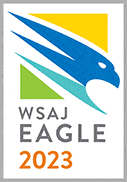Litigation
If your case was not initially settled at the demand stage, it may be necessary to proceed with formal litigation or a lawsuit. You are probably apprehensive, especially if you’ve never been party to a lawsuit before. However – as long as you tell the truth and work with us, you have nothing to worry about.
Here is a quick overview of what to expect in litigation.
Length of Litigation
The length of any litigation will vary based on a number of factors. Sometimes litigation is very quick, with a new settlement offer immediately after the lawsuit is filed. Other times, the case may not be settled and the process could take anywhere from a few months if the case is resolved in arbitration to a year or more to finally go to a jury trial. Either way, we will be at your side throughout the entire process.
First Steps
When we file a lawsuit on your behalf, we will receive a case code number and a schedule from the court. This schedule lays out all of the important deadlines and hearing dates for your case, including your trial. After the lawsuit is filed, the defendant is officially served with the suit, and has a limited number of days to formally respond.
Arbitration or Trial?
Depending on the circumstances of your case, it will either proceed to trial before a judge and jury, or to arbitration. Arbitration is a quicker and less expensive way to resolve disputes. Rather than a normal judge, a retired judge or attorney typically oversees the case.
We typically avoid arbitration when your damages exceed $100,000, because that is the maximum amount that can be awarded in an arbitration proceeding.
Sometimes, due to either the language of your insurance policy or the preference of both parties, a case will proceed to arbitration rather than the public court system.
More information on arbitration is available here.
Your case may also go into mediation. More information about that process is available here.
Discovery
Before the trial or arbitration officially begins, there is a process of evidence collection called discovery. During this process, both sides will collect evidence, witness statements, etc. Discovery helps both sides to narrow down the disputed facts in the case and set up their arguments for trial.
Interrogatories
During the discovery process, you will likely be asked to answer a series of interrogatories, or questions posed by the opposing attorney in writing. For the most part, these will be simple questions about the nature of what happened to you, your pain level, symptoms, among other issues. It is vitally important that these questions are answered truthfully.
Typically, the vast majority of the questions are easy for us to answer based on the information you have already provided us. We will fill out responses to each of the questions and note any areas where we need more information from you.
Once we feel that we have sufficient answers to all of the questions, we will ask that you sign to verify that they are true.
For an example of an interrogatory, click here.
Depositions
Interrogatories are often given early on in the process to prepare for a deposition. A deposition is an oral interview, usually conducted at a law office, with a court reporter present for transcription. The defense attorneys will question you, attempting to nail down your story and catch any contradictions. For more information on depositions and how to prepare for one, click here.
Defense Medical Examination
If a case proceeds toward trial, the defendant will likely ask for a medical examination so that they can confirm (and question) your injuries. More information about these examinations is available by clicking here.
Experts
Depending on the nature of your case, we may hire experts to testify at trial. These may include medical experts who can speak to your injuries, accident reconstruction experts to help determine fault, and economists to calculate your lost wages.
Trial
Your case may settle long before trial. However, if your case does go to trial, you can be assured that your case is in good hands. Our litigation staff has a strong track record of winning difficult cases, as well as negotiating powerful settlements on the eve of trial.
More information on the trial process is available here.







